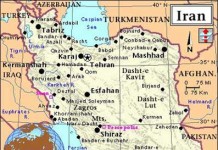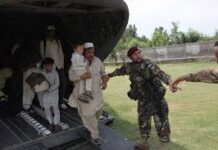 PoliTact has been covering various aspects of the asymmetric warfare being carried out in the Af-Pak Theater of operations. During the Musharraf era, drone attacks were introduced for the first time; however, Pakistan strongly resisted to ‘troops on the ground’ type of US operations. In the face of apparent inaction against extremists, US has crossed this particular Pakistani redline twice this year: once in the form of Raymond Davis Incident, and the second time as Operation Geronimo against Osama Bin Laden. From all indications, it appears Pakistan has lost one of its key leverages over US, superior intelligence on Pak-Afghan landscape. This alert examines the implications of this sea change.
PoliTact has been covering various aspects of the asymmetric warfare being carried out in the Af-Pak Theater of operations. During the Musharraf era, drone attacks were introduced for the first time; however, Pakistan strongly resisted to ‘troops on the ground’ type of US operations. In the face of apparent inaction against extremists, US has crossed this particular Pakistani redline twice this year: once in the form of Raymond Davis Incident, and the second time as Operation Geronimo against Osama Bin Laden. From all indications, it appears Pakistan has lost one of its key leverages over US, superior intelligence on Pak-Afghan landscape. This alert examines the implications of this sea change.
Osama’s elimination not only presents a significant milestone in the war against terror but it has also challenged one of the key advantage Pakistan held in the war against terror, it’s superior intelligence on the Pak-Afghan landscape. Although its not clear what role Pakistan played in the operation, from all signs it looks like that corroboration of different pieces of information was done by US, including the execution.
US dependence on Pakistani intelligence was one of the key leverage the country held over US. In the post Raymond Davis atmosphere and after the recent Pasha-Panetta meeting in Washington, Panetta had declared that it does not needs Pakistan’s support anymore as it has its own network in FATA and Pakistan. And after the successful Geronimo Operation, it has been proven that Panetta’s claim was not simply hot air. Pakistan has been outmaneuvered and It could be a matter of time before others (Haqqanis and Quetta Shura) are targeted. This increases the pressure on Taliban, and for Pakistan to facilitate the reconciliation in Afghanistan on US terms.
US could not have managed such an operation without accurate ground intelligence. What led to the Raymond affair was aggressive intelligence collection that has probably caused the success of Geronimo mission. Since the Raymond affair, Pakistan demanded rollback of CIA activities in the country. Now, it appears, that claim came a little too late. The nightmare for Pakistan is to determine how extensive and deep is the network.
US has moved from trying to influence Pakistan’s position through military and economic aid and a process of strategic dialogue. Now, US is moving from merely posturing to actually acting on the threat of ‘troops on the ground’ and use of force. In the coming days, using the success of Abbottabad, US would bluff and extract a lot more cooperation from ISI. However, in the long run, Pakistan would put in place corrective measures, as an outside player cannot undo the advantage a local player. Thus with the prospect of more US ground operations on the horizon for Pakistan, US would want to speed up talks with reconcilable Taliban, before the window of opportunity fades.



